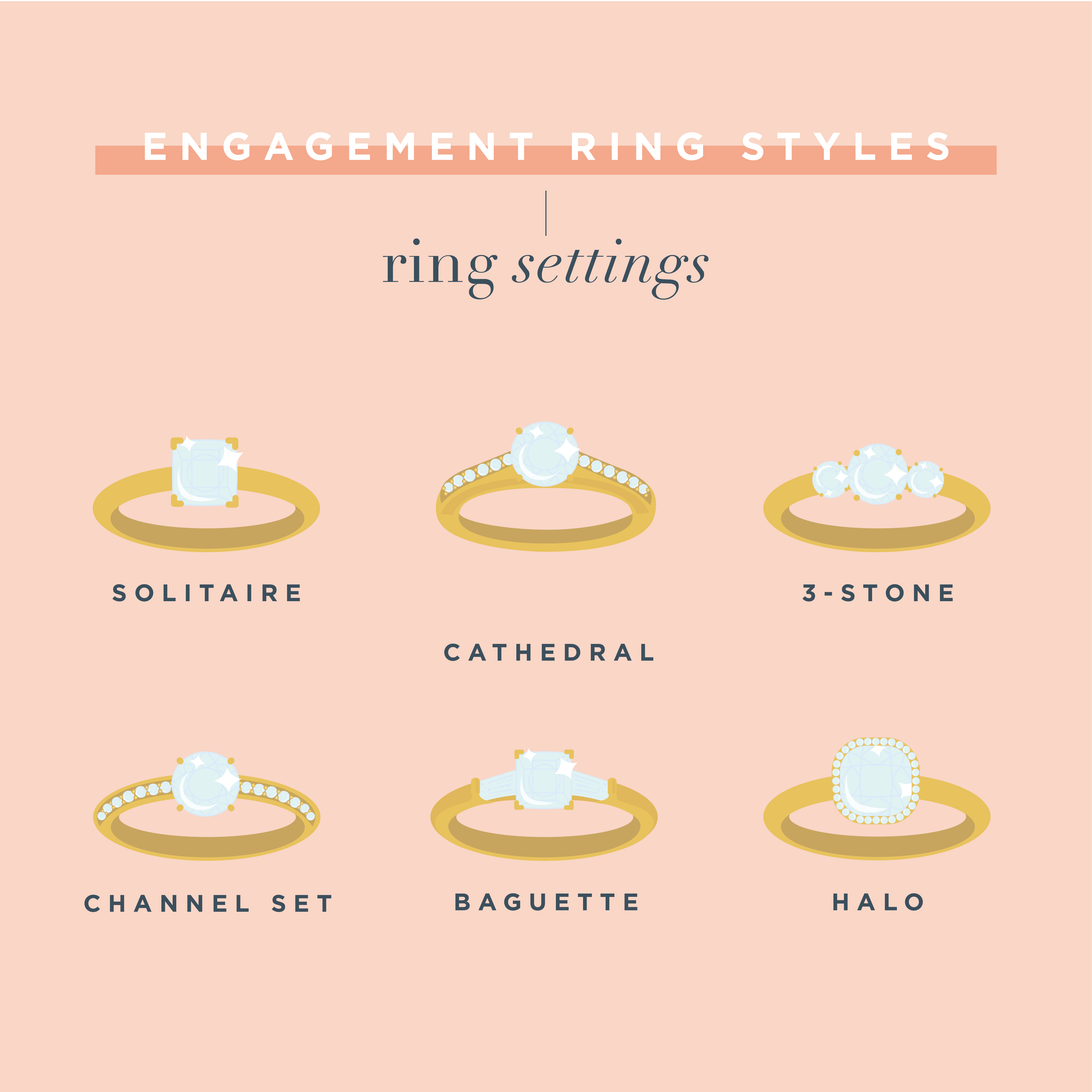If you’re on the hunt for a diamond engagement ring, you may have heard the term “lab grown diamonds” thrown around. If you’re not sure what the difference is between lab grown and natural diamonds, you’re in luck! We spoke with Clean Origin to find out what the difference is and, most importantly, why someone should consider one for their engagement ring. Read on to learn more about these diamonds and their ethical and environmental benefits!

Photo // Courtesy of Clean Origin
What is the difference between lab grown and natural diamonds?
The only difference is their origin. Natural diamonds are mined from the earth while lab grown diamonds are, as the name indicates, created in a lab. Lab grown diamonds use technology that replicates the heat and pressure that natural diamonds experience deep within the earth.
How are they created?
There are two processes that can create lab-grown diamonds: High Pressure-High Temperature (HPHT) and Chemical Vapor Deposition (CVD). An HPHT diamond starts as a small diamond seed that’s placed into carbon. Then, the seed is exposed to 1.5 million pounds per square inch of pressure and 1500 degrees Celsius of heat. The pure carbon melts and starts to form a diamond around the starter seed. Once cooled, a pure carbon diamond remains. CVD diamonds begin as a thin slice of diamond seed, often produced from an HPHT diamond. The diamond seed is placed into a sealed chamber and heated to 800 degrees Celsius. Then, the chamber is filled with a carbon-rich gas like methane. Using technology similar to that of microwaves or lasers, the gasses are ionized into plasma, creating pure carbon. That carbon bonds with the diamond seed and slowly crystallizes to form a lab grown diamond.
What are the benefits of buying a lab grown over a natural diamond?
Diamonds grown in a lab are an ethical and environmentally responsible alternative to natural diamonds. According to a report from Frost and Sullivan, every carat of a natural diamond that is mined disrupts nearly 100 square feet of land and creates almost 6000 pounds of mineral waste. Mined diamonds also result in 1 injury per 1,000 workers annually while ethically grown diamonds result in zero. Keep reading to see the cost effectiveness as well!
Can anyone tell the difference between an ethically grown and natural diamond?
No, they appear exactly the same. They’re made using different processes, but each process produces the exact same result. Even trained professionals can’t tell the difference with only the naked eye.

Photo // Courtesy of Clean Origin
Does the value differ?
Lab grown diamonds are 20-30% less expensive than natural diamonds. This is because diamonds grown in a lab have a shorter supply chain, which means you can have the signature diamond sparkle at a competitive price.
What is the difference between lab grown diamonds and diamond simulants?
Lab grown diamonds are real diamonds while diamond simulants only look like diamonds. Diamond simulants can be any material that’s made to appear like a diamond to the naked eye. A common diamond simulant is a cubic zirconia; it may look like a diamond, but has very different characteristics from the real thing.
Are they suitable for an engagement ring?
They are perfectly suitable for engagement rings! Because they are real diamonds, they have the same strength and sparkle as traditionally mined diamonds. The competitive pricing of lab grown diamonds makes it possible to craft a stunning ring that’s within your budget, while also providing an ethical option that gives you and your partner peace of mind through all of life’s special moments.
Sustainable and a lower price tag?! Count us in! Shop Clean Origin‘s selection to get your own.
Featured in this Post
Other Local Vendors: Clean Origin















